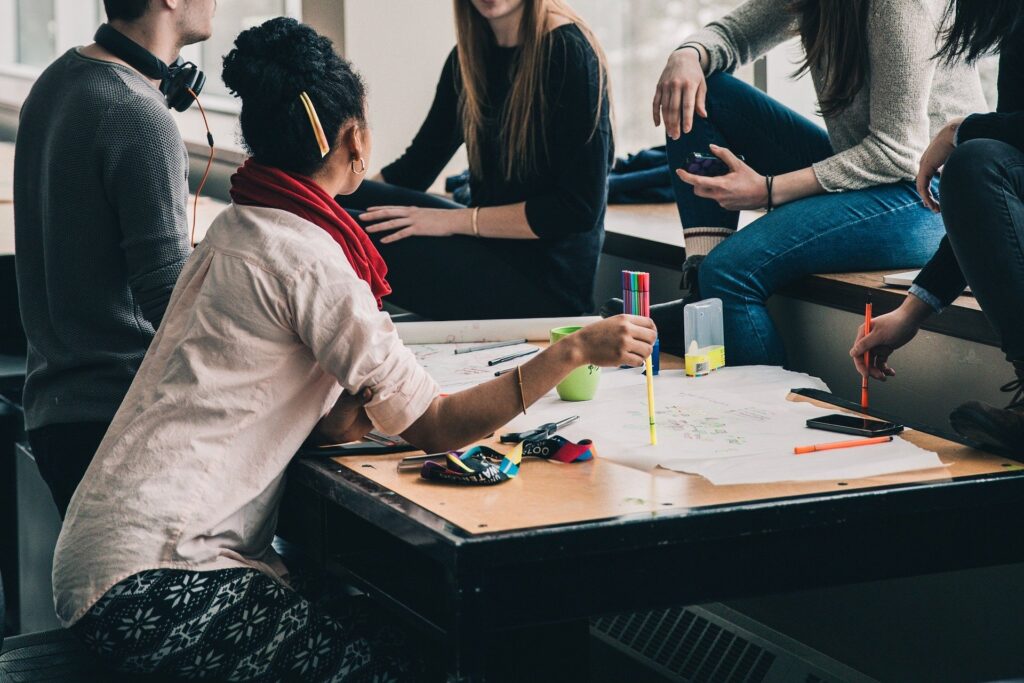In this article we are going to talk about the What are some good tips for studying? We all are well acquainted with the importance of education and the value of studying and gaining knowledge and skills. Studying is more than vital and an agent towards learning. For some students it is easy, for some it is not. It all depends on your interest in the particular topic and subject you are studying. Some students find themselves good at math while others find themselves good in science. It is not necessary that each and every student would be good in each and every subject. Expertise can however be gained and the basic set of mental faculty can be attained through practice to be able to learn any subject. This requires determination to study and excel in that patinoar subject and encouragement from teachers and parents and peers can go a long way in acquiring aptitude for a particular subject.
What Are Some Good Tips For Studying?
Study pattern and behavior can be different for every student because we all are different. In order to truly excel in any subject one wants to, it is very important to gain an understanding of the nature of the subject then by trial and error, try which study technique or combination of study techniques works best. This way everyone has to devise an effective study method that works for them. What might work for one student could be really detrimental to the other student because it is not their way to integrate and assimilate new information. Therefore, authenticity is really important. Examining the ways that work particularly best for YOU will help you study effectively and get good grades in the subject you want to get good grades in. Some of the study tips are mentioned below:
1. Have a fixed place to study

This is a form of classical conditioning where you study at a fixed place. This fixed place is your study spot and you do nothing except for studying here. No eating, no sleeping here. Only and only study should be done here. This should not be done in the bed because bed is a place where you sleep and the brain associates sleep with the bed. This is the purpose of bed. And this conditioning can be really useful if done correctly. By fixing a particular desk as a study desk, your brain associates this desk with the function of study. This way whenever you sit at the table, you will be able to study effectively.
Click Here: Best Career Articles
2. Go slow and steady

The course is enormous and it is practically impossible to be able to mug it up in a really short amount of time. Go slow and steady. Do not rush it. Plan your study schedule effectively and make sure it is not too unrealistic to follow and make it feasible and flexible. Keep the study schedule flexible because we all know how everyday in life is so uncertain and anything comes up at any time. Do not try to remember everything in the first go. The first reading of the course material should be informal. Just give it an overall read to know what it is about then get into the specifics gradually. Try to recite what you read and see if it fits with anything you already know. Try to integrate the information in the textbook into your mental schema. Do not study a night before a test because that usually backfires. Plan and study in advance.
3. Use mnemonics

The name might sound new but mnemonics are something that we all have been doing to remember things from a very young age. Mnemonics are basically memory devices or mental tricks that are used to encourage recall of information. One of the earliest cases of mnemonic devices any student could recall is possibly the word ‘VIBGYOR’ for the seven colors of rainbow namely- violet, indigo, blue, green, yellow, orange and red. Some other mnemonic techniques include retrieval cues and mental imagery. The purpose of these short mental shortcuts is to be able to assimilate the new information readily by associating it with something you already know so that it is easier to recall the information and use it when needed.
Read Also: What Skills Do Students Need To Be Successful?
4. Flowcharts

When there is a concept within which there are many other concepts, it can get really hard to remember each and every sub concept. This is when graphic organizer and flowchart help in retaining the maximum information. Graphic organizers give a rough layout or structure of the concept. While memorizing the entire concept could take a substantial amount of time that is not generally worth the effort, making rough structure and memorizing the same can do wonders in remembering the concept. This is because once the structure is registered in memory and you have read it enough times, the brain can quickly pick up the essential information to be penned down on test paper leading to better grades with lesser time needed to study.
5. Practice teaching others

Try to say what you have read in your own words. By doing this, the sentence isn’t the book’s sentence anymore but is your sentence. The aim is to put the course material into your terms, give it all your language that way it would be clear to you as the content now would be refined. For this, try teaching others. If this is not feasible or possible, try teaching a stuffed toy or maybe a chair. It does not have to be an actual person but the milieu should somehow imitate a classroom setting. The best way to learn something is to teach it. This solves that purpose and you will work on your speaking skills along with memorizing study material at the same time.
Click Here: Interesting Articles To Read When Bored
6. Study groups

A study group is a great way to make you feel like you are not alone. The pressure of studies can get really overwhelming and staying in close contact with the people who are going through the same is comforting. Make sure the friends are studious and disciplined because it takes no time without discipline for a study group to turn into a play group. Study together with your friends. Explain your answers to each other, ask for help, help others as well. Communication helps retail and registers a lot of information. Discussing study topics within your friends outside class and seeking their perspectives can help everyone in the group gain a clear understanding of the course material and enhance the perceptual horizons.
Click Here: Interesting Articles To Read This Week
7. Take breaks

Studying for six hours can sound productive but the reality is that nothing productive happens that way. It is highly difficult to be studying for six hours straight with no breaks. Even if one manages to do it , it won’t continue for long. That is because the brain starts getting fatigued and no new information can be registered after a certain threshold is reached. It is very important to take short breaks. The most effective method is to study for 25 minutes and then take a break for 5 minute and study this way for as long as needed. Make sure you do something rewarding after the study session so that you remain motivated and look up to the next study session. The way study fatigue can be reduced to a great extent and can increase efficiency followed by good grades.
Read Also: 10 Benefits Of Reading Articles
8. Avoid distractions

It is an obvious yet overlooked precondition to productive studying. You cannot study when there is loud music or television playing in the background or when there is commotion around the house. It is important to get rid of the physical and mental distractions. Mentally, try to relax before sitting to study. For this, try relaxation exercises or listen to some meditative exercises. A clean mind produces clean results. Get rid of any thoughts that are occupying your mind which can pose a possible hurdle to the learning process. If possible try to be in a quest and calm environment free from noise to be able to fully focus on studying.
9. Exercise before studying

It is only natural for strain to build up within the body. Students generally overlook exercising in order to study especially during exam time. This could prove to be detrimental in the long run because physical heath is very important besides; exercise helps reduce anxiety and stress levels and helps in increasing focus and productivity. This could really help when you blow off the steam and the mind is rid of any stresses and then you study and focus. This will likely give a way improved outcome. This does not mean going all beast mode at the gym because then you’ll feel tired and will have absolutely no energy left to be able to study. Do a light workout just enough to get the blood pumping and the body awake. When the body is awake, the power of concentration increases.
Read Also: What Are The Advantages Of Working While Studying?
10. Study before bed

Sleep is essential for brain functioning, learning, memory and retention. Study at night time after you are done with the day. Sleep helps in retention of information and somehow what you have studied before bed gets stored in the brain better as it is fresh in the system and brain processes it in the night as you sleep.